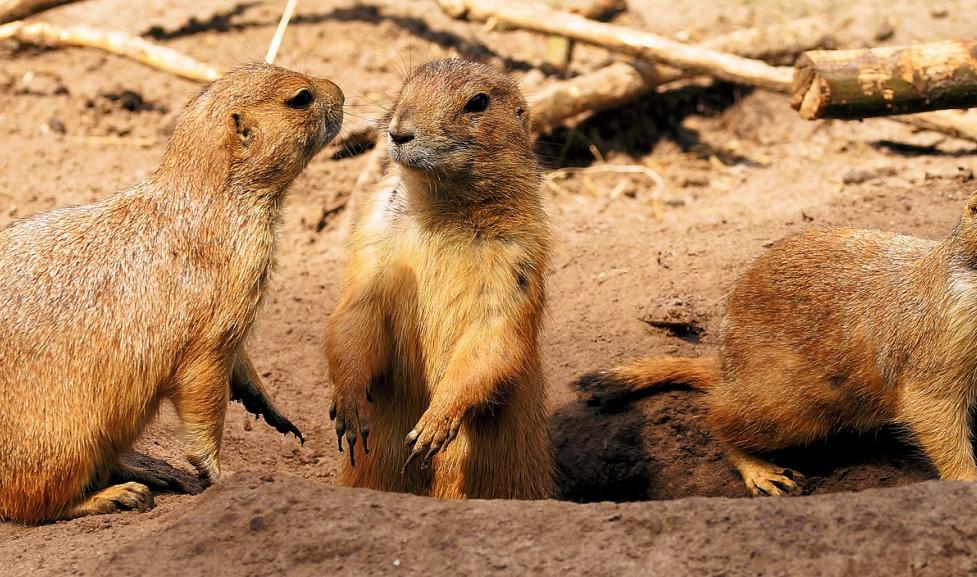Co-Existing with Urban Wildlife
The purpose of the UWMP is to establish a set of policies and guidelines for managing wildlife within Boulder. The intent of the plan is to integrate urban wildlife management in the Boulder Valley with the existing and emerging plans and policies of the Open Space and Mountain Parks (OSMP) Department.
The UWMP establishes a framework for making urban wildlife management decisions, provides direction on regulatory and program changes, and outlines a set of actions for long-term management of human-wildlife conflicts.
Deterring Bears in Urban Areas
Bears have always been a part of life in Boulder. The city’s urban wildlife conservation project aims to ensure bears and humans can safely co-exist. Through education, awareness and laws, the city is working to limit the food available to bears so they are not drawn to urban areas.
Bear Protection Ordinance
The city's 2017 Bear Protection Ordinance 8161 aims to protect bears by eliminating access to food rewards found in trash and compost bins. The ordinance requires:
- Anywhere in the city: Bear-resistant containers are required if trash and compost are put out the night before pickup.
- West of Broadway and south of Sumac Avenue: All compost and trash carts, containers, dumpsters or enclosures must be bear-resistant or stored in a building, house, garage, shed or other enclosure until emptied by a trash hauler.
- View the below map of the area where bear-resistant containers are mandatory at all times.
- Frequently Asked Questions - Bear Protection Ordinance
Noncompliance Fines
Code enforcement officers will issue fines for noncompliance, including not latching containers, and violators will not receive warnings. Officers may issue tickets in-person or give citations to property owners via email or printed notification. The fines are:
- $100 for the first offense
- $250 for the second offense
- $500 for the third offense.
Please note yard waste such as leaves and branches are not considered bear attractants and can be put out for collection in leaf-litter bags or bundled with string. If compost containers only contain yard waste, they must still be latched. Also, bear-resistant carts and recycling containers can be put out for collection after 8pm the night before pick-up anywhere in the city.
Reducing Urban Bear Attractants
To help protect bears, community members are encouraged to reduce potential bear attractants. This includes:
- Using bear-resistant containers in working condition or storing waste in an enclosed space
- Harvesting ripe fruit
- Securing and protecting backyard livestock such as chickens, goats and bees. These animals are bear attractants and need to be housed in secure structures. Electric fencing* is another way to protect livestock from bears.
- Feeding birds in winter months only
*Electric fencing requires a permit in the City of Boulder.
Prairie Dog Lethal Control Permits
City ordinance requires landowners to obtain a permit from the city before using any form of lethal control on prairie dogs. In order to obtain a permit, the landowner must demonstrate the following:
- A reasonable effort has been made to relocate the prairie dogs to another site;
- The most humane method of lethal control possible will be used;
- The landowner has an adequate plan designed to prevent the reentry of prairie dogs onto the land after the prairie dogs are lawfully removed.
In addition, one of the following conditions must exist
- The land on which the prairie dogs are located will be developed within fifteen months of the date of the application and the continued presence of prairie dogs would make such development impractical or impossible;
- A principal use of the land will be adversely impacted in a significant manner by the presence of prairie dogs on the site; or
- Established landscaping or an open space feature established and installed prior to any prairie dog colonization will be adversely impacted by the establishment of new prairie dog colonies.
The waiting period after the submission of an application is a minimum of three to five months. If the city determines that relocation alternatives exist during or after the initial three-to-five month period, it may delay issuing the permit for an additional 12 months in order to allow relocation to occur.
The basic administrative fee for a lethal control permit is $1,500. An applicant for a prairie dog lethal control permit must also pay a fee of $1,200 per acre of active prairie dogs habitat lost, pro-rated for any partial acres of lost habitat.

